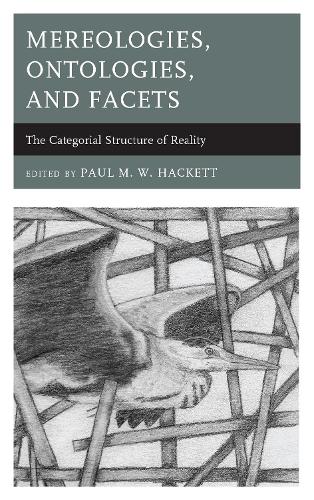
Mereologies, Ontologies, and Facets: The Categorial Structure of Reality
(Hardback)
Publishing Details
Mereologies, Ontologies, and Facets: The Categorial Structure of Reality
By (Author) Paul M. W. Hackett
Contributions by Paul M. W. Hackett
Contributions by Alison L. Greggor
Contributions by Gal Yehezkel
Contributions by Claire Ortiz Hill
Contributions by Jonathan Symington
Contributions by Jonathan C.W. Edwards
Contributions by Torgus Midtgarden
Contributions by Aharon Tziner
Contributions by Walter J. Schultz
Bloomsbury Publishing PLC
Lexington Books
15th July 2018
United States
Classifications
Professional and Scholarly
Non Fiction
Philosophy
Social, group or collective psychology
Psychology
111
Physical Properties
Hardback
282
Width 159mm, Height 237mm, Spine 24mm
567g
Description
The assignment events, objects, state of beings, etc., to an experiential category is a fundamental activity carried out by human (and by other animals). So rudimentary are the processes involved in categorizing that it is indeed impossible to imagine conscious awareness to exist without the presence of categories. A considerable body of writing exists on categories dating from the times of Classical philosophy. Plato developed a categorical ontology and Aristotle produced one of the earliest examples of a complex understanding of basic ontologies. A number of other categorially structured ontologies have been proposed including those by Lowe, Westerhoff, Chisholm, etc. The book is an edited collection of up to the moment essays that address critical aspects on the understanding of categories and categorial systems. The perspectives included in the book are drawn from philosophy, psychology, theology, divinity, comparative cognition and facet theory. The authors are all renowned experts in the area of their writing. Topics addressed include both contemporary advances in the understanding of perennial debates and latest thinking upon how categories are employed to structure our experiences of the world we live in. The book is distinct as being written by philosophers and psychologists. The book is a collection of writings from selected academics at the fore of debates and understandings of categories in contemporary thought. The text provides a single source for contemporary scholarship in categories. No single text that brings together expositions of categorial experiences for students and academics within the above listed disciplines.
Reviews
A timely and wide-ranging survey of current philosophical work on the topic of categorization, enriched with examples pertaining to the way categories work psychologically. Useful for those interested in philosophical ideas and arguments -- and for those who want to see how philosophy is being applied to real-world problems. -- Barry Smith, University of Buffalo
Each one of these essays makes an important contribution. The collection is more than the sum of its parts: it shows in detail how scientifically informed and philosophically animated inquirers, writing in a rigorous yet accessible style, can deepen our understanding about one of the most fundamental aspects of human cognition - categorization. -- Vincent Colapietro, Pennsylvania State University
Author Bio
Paul M.W. Hackett is professor in the School of Communication at Emerson College.
